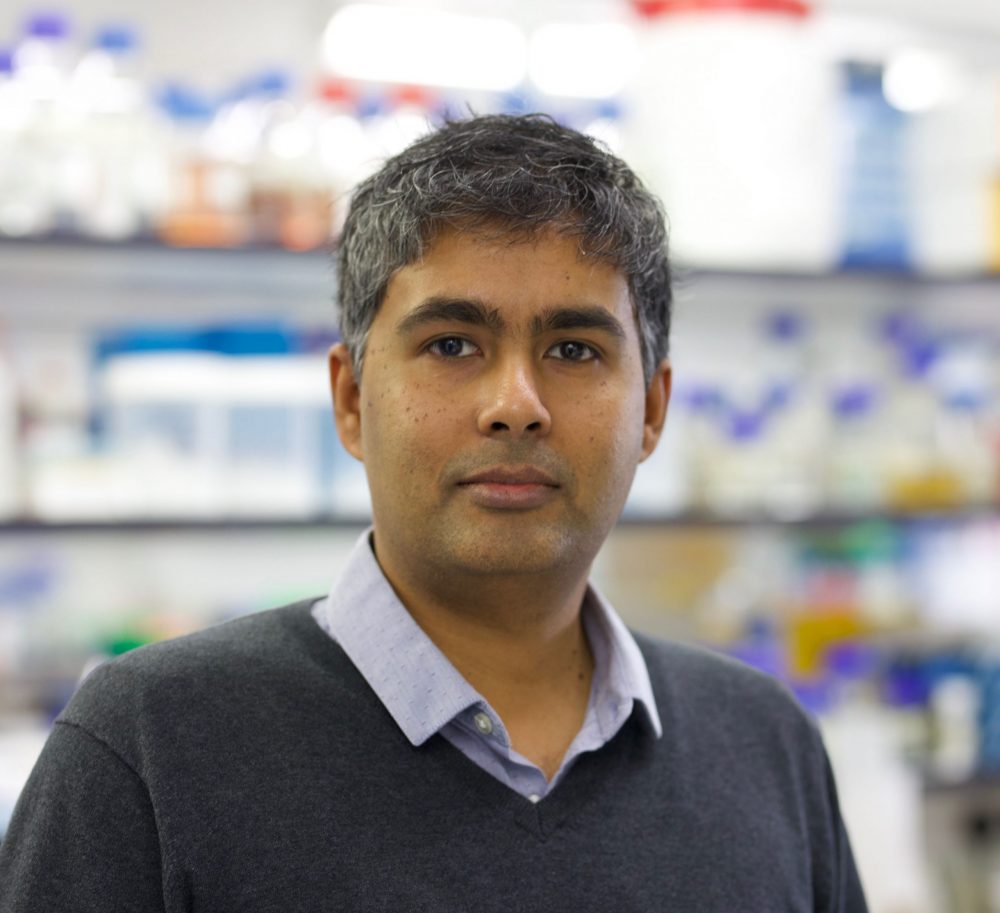A SCOTTISH university projects have been awarded millions in a prestigious EU funding competition.
Two projects led by the University of Dundee researchers were awarded €4m by the European Research Council (ERC).
The grant was awarded as part of the Consolidator Grant competition as part of universities frontier research in life sciences.
Dr Yogesh Kulathu and Dr Jorunn Bos, both of the University’s School of Life Sciences, have been awarded the grants for their research projects that look to investigate unexplored areas of cell biology and explore novel ways to provide plant protection, respectively.

Dr Kulathu’s project, StressHUb, aims to gain insights into the fundamental principles regulating stress at the cellular level.
The €2.1 million ERC funding will enable Dr Kulathu and his colleagues to develop new technologies and methodologies for use in understanding how unresolved stress results in disease.
The cells of the human body are constantly exposed to stresses, such as UV light and carcinogens, heat, and metabolic stresses.
Cells use intricate intracellular signalling pathways to translate these environmental challenges into appropriate cellular responses.
Currently, these signals – and the reasons why they go wrong in disease – are poorly understood due to the lack of tools and methods to study them.
Dr Kulathu, MRC Investigator and Group Leader at the Medical Research Council Protein Phosphorylation and Ubiquitylation Unit (MRC PPU), said, “We are studying almost unexplored areas of cell biology which has immense potential for ground-breaking discoveries.
“StressHUb will explore the functions of branched heterotypic ubiquitin chains (HUbs) in cellular stress responses.
“These branched HUbs play important roles in the physiology of human cells, however, their functions have not been defined because of the complex nature of these modifications and the lack of ways to study them.
“We will develop novel tools and methodologies which will reveal the cellular machinery that makes these modifications, how they are formed in response to stress, and their roles in resolving cellular stress.
“This knowledge can then be used to develop drugs to treat various diseases where cellular stress is not resolved, such as neurodegeneration, chronic inflammatory diseases and cancer.”

Dr Bos, a principal investigator in the Division of Plant Sciences and the James Hutton Institute based in Invergowrie, and her project, APHIDTRAP, will explore and develop new ways to provide crop protection against insects.
The grant, worth almost €2 million, will allow her research team to take new directions to answer important questions on how insects such as greenfly and blackfly, commonly known as aphids, are such successful pests.
Current aphid control relies almost exclusively on insecticides, which are costly, damaging to the environment and to which aphids develop resistance.
Dr Bos and her team are interested in understanding the molecular dialogue that takes place between plants and aphids to come up with new solutions.
Dr Bos said:“This project is building on years of work by members of my team, past and present, and without them this would not have been possible,”
“The key questions that drive APHIDTRAP are building on previous findings that aphids can actively promote host susceptibility using effector proteins. The function of these effector proteins is based on association with host proteins and modification of their activity.
“The next step is to try and understand how these protein-protein interactions take place, and what the downstream consequences are with regards to susceptibility.”
